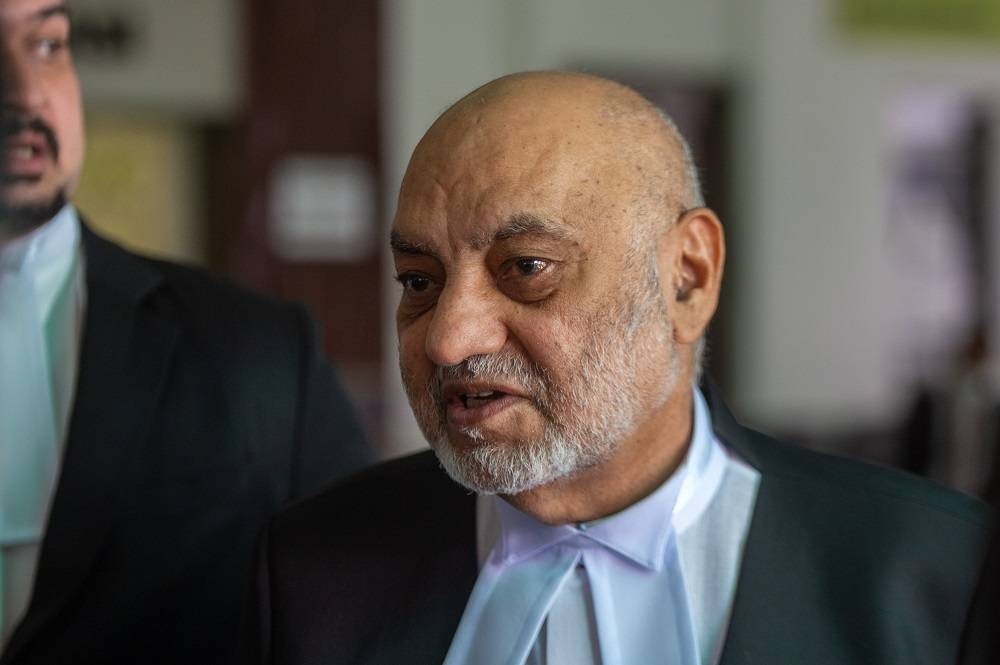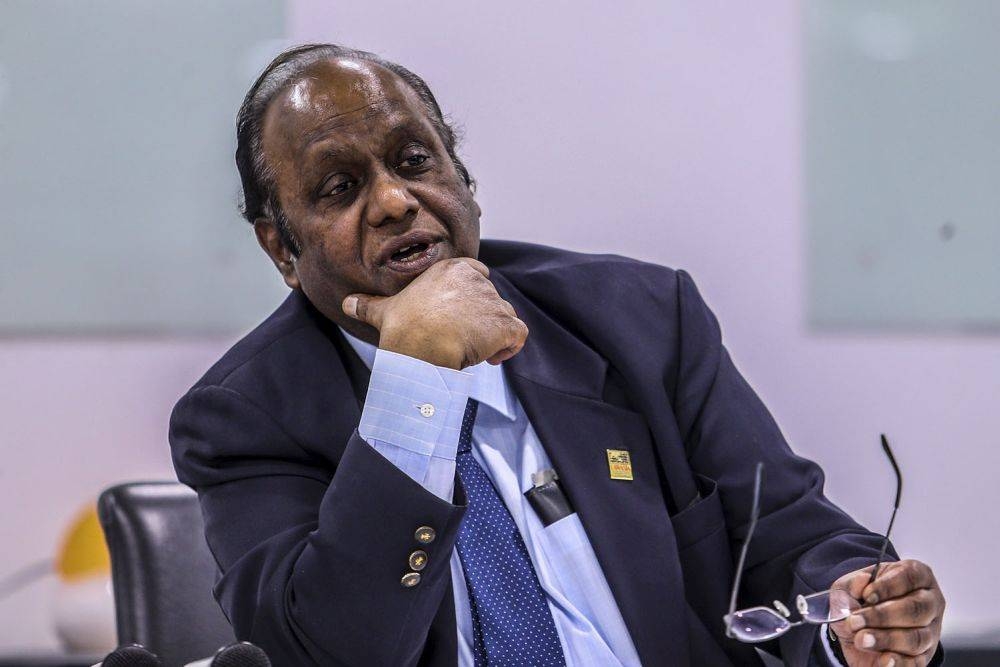
KUALA LUMPUR, June 22 — The amendment to Malaysia’s Federal Constitution in September 2001 which prohibits gender discrimination in the country’s laws is invalid, the Attorney General’s Chambers argued at the Court of Appeal today.
Senior federal counsel Liew Horng Bin, who represented the Malaysian government, cited a recent Federal Court judgment when presenting this argument to the Court of Appeal.
"Based on this latest decision, it would appear Article 8 cannot be amended, so it follows that the Article 8(2) amendment in 2001 with the insertion of ‘gender’ is impermissible, following this latest pronouncement in the Federal Court,” he argued.
Article 8(2) provides that there shall be no discrimination against Malaysians based on religion, race, descent or place of birth in any law, and the Malaysian government had via Parliament in September 2001 introduced "gender” to the list in Article 8(2) to also prevent gender discrimination in Malaysian laws.
Highlighting the Federal Court’s April decision in the case of Dhinesh a/l Tanaphll v Lembaga Pencegahan Jenayah and two others, Liew said it had said all provisions in Part II of the Federal Constitution (which contains Article 8) and all citizenship provisions of the Federal Constitution are basic features or the basic structure of the Federal Constitution which cannot be amended.
Zooming in on Paragraph 125 which is one of the paragraphs in the Federal Court’s decision, Liew argued that the Federal Court had said the constitutional amendment could be done to improve the Constitution, but that such constitutional amendments cannot be extended to basic features of the Federal Constitution as it would "result in a new constitution rather than constitutional improvement”.
Liew argued that the entire case of the Malaysian mothers seeking to pass on citizenship to their children born abroad would collapse, if the Article 8(2) amendment is not permitted even for the purpose of improving the Federal Constitution.
He further argued that citizenship provisions in relation to Article 14(1)(b) in the Federal Constitution also cannot be improved on to enable Malaysian mothers to also pass on citizenship to their overseas-born children just like Malaysian fathers.
"The Federal Court also says citizenship is a basic feature to the extent that Parliament cannot amend it, even to improve it. Therefore it is my respectful submission since it cannot be amended, there is a greater force in the argument that the court should not interpret it to read ‘father’ to include ‘mother’. Because if even Parliament cannot amend it, then what is the constitutional basis for the court to do that?” he said.
The key provisions in the Federal Constitution at the heart of the Court of Appeal hearing today include Article 14(1)(b), which provides that every person born on or after Malaysia was formed in 1963 are "citizens by operation of law” or entitled to Malaysian citizenship as a right if they fulfill the conditions in Part II of the Federal Constitution’s Second Schedule.
Two of the conditions in Part II of the Second Schedule — Section 1(b) and Section 1(c) — only mention having a Malaysian "father” as a requirement for overseas-born children to be a Malaysian.
Liew argued that the word "father” in these citizenship provisions should remain as "father” only, as he insisted that these provisions could not be amended.
Court of Appeal judge Datuk S. Nantha Balan highlighted that the amendment in 2001 to Article 8(2) was an enlargement of the scope of discrimination which Malaysians are protected from, asking: "So you are saying even if it is a positive amendment and not curtailment of protection, such improvement and enhancement of discriminatory scope is now snuffed out? Your interpretation of Article 8(2) is that they have unwittingly invited the consequence that the September 2001 amendment is invalid?”
Liew then agreed that this was the AGC’s position, by insisting that the Federal Court judgment would mean that constitutional amendments meant for constitutional improvement cannot be done on basic features of the Federal Constitution.
But even if the Article 8(2) amendment that protects Malaysians from gender discrimination remains valid, Liew argued that it would still not apply to the citizenship provisions under Article 14, citing what a minister had said in Parliament previously on the Article 8(2) amendment.
Liew concluded by saying it is for Parliament to make any improvements to the Federal Constitution, and that the courts do not have the constitutional mandate to make such improvements.
Ultimately, the Malaysian government’s position in this case is that it is appealing against the High Court’s September 2021 decision which had said that the word "father” in citizenship provisions in the Federal Constitution should be interpreted to include "mother”, in order to harmonise it with Article 8(2).

What the other lawyers said
Datuk Gurdial Singh Nijar, who represents the Malaysian mothers in this case, argued that the Federal Court judgment when read as a whole actually supports improvements to the Federal Constitution such as the Article 8(2) amendment in 2001, and that the Federal Court was only against constitutional amendments which undermine the basic structure or basic features of the Federal Constitution.
"So how is Article 8(2) undermining the equality provision in the Constitution? It is enhancing it,” he said.
Highlighting that Article 8 is an all pervasive provision that has to be taken into account when considering other constitutional provisions, he said there should be harmonious interpretation of Article 8(2) and the citizenship provisions to prevent discrimination against Malaysian women in citizenship matters.
Gurdial said the best interests and rights of the child is actually key to this court case, as denial of Malaysian citizenship to these children born abroad to Malaysian mothers are affecting their lives and their families.
"Many of these children are actually staying in this country with their parents, they are completely eclipsed in terms of their interests, some of them even have siblings who are citizens because they are born here,” he said, arguing that refusal to recognise such overseas-born children risks tearing apart the families such as during the Covid-19 pandemic when travel was restricted and that there are also cases where the Malaysian mothers are separated from the foreigner fathers.
He also noted that many Malaysian mothers have been spending seven to 10 years applying for their children born abroad to be recognised as Malaysians but with no positive outcome and that their children have been deprived of their right to education and healthcare, and that it was out of "desperation” that they were forced to come to the court.

Datuk Cyrus Das, a lawyer representing a woman who was born overseas to a Malaysian mother and who is still seeking to be declared a Malaysian, argued that it would be "cherry-picking” to just focus on one paragraph of the Federal Court judgment.
He maintained that the citizenship provisions in the Federal Constitution are currently discriminatory and that the word "father” should be read in a non-discriminatory way once Article 8(2) is applied.
Saying it was rather astonishing for the AGC to argue that the amended Article 8(2) should not be given recognition or given effect, he argued that there should not be collateral attacks in this lawsuit on the constitutionality of constitutional provisions such as Article 8(2).
"So when Article 8(2) was amended in 2001 and has the run of so many years to prevent gender discrimination, that is an amendment that has been validly recognised and applied. And if it is the view of the learned SFC that the removal of gender discrimination is unconstitutional, then they must be prepared to step forward and challenge the legality or constitutionality of that amendment.
"Is he now saying amendment on gender discrimination is invalid and gender discrimination should exist? It can’t be, can it? Therefore I would submit this new point being brought up by the senior federal counsel on the basis of this judgment is quite untenable,” he later added, referring to the Federal Court decision which the AGC had highlighted.
Cyrus clarified that the Malaysian mothers are asking for the court to harmoniously interpret Article 8 — which the Federal Court had in many cases decided applies across the entire Federal Constitution — with citizenship provisions so that it does not discriminate against Malaysian mothers.
Liew later argued that he had never said the Article 8(2) amendment is unconstitutional or ineffective, and insisted that the Article 8(2) amendment does not apply to Article 14.
After hearing the arguments, the Court of Appeal fixed August 5 to deliver its decision. The three-judge panel is headed by Datuk Seri Kamaludin Md Said and comprises Datuk Azizah Nawawi as well as Nantha Balan.
The Court of Appeal was initially scheduled to deliver its decision on two appeals today, but had asked lawyers to present their arguments today after the AGC recently raised the Federal Court’s case for the court’s attention.
The first appeal is by the Malaysian government against the High Court’s September 2021 decision which recognised that Malaysia’s citizenship laws discriminated against women and ruled that Malaysian mothers whose children are born overseas should also be entitled to Malaysian citizenship.
The High Court had ruled in favour of six affected Malaysian mothers with overseas-born children and advocacy group Family Frontiers in their lawsuit against the Malaysian government, the home minister and the National Registration Department director-general.
Apart from Gurdial, the other lawyers for the Malaysian mothers are Ngeow Chow Ying, Gan Pei Fern, Joshua Andran, Loh Suk Hwa, Abraham Au Tian Hui, Denishia Rajendran, while lawyers who held watching brief in this case are Vilasini Vijandran for the Bar Council and Tay Kit Hoo for the Human Rights Commission of Malaysia (Suhakam).
The second appeal is by Mahisha Sulaiha Abdul Majeed, a woman - born to a Malaysian mother and Indian national father in India — who wanted to be declared a Malaysian citizen but was unsuccessful at the High Court.
The other lawyers representing Mahisha Sulaiha today are Raymond Mah, Jasmine Wong, Eric Toh, while senior federal counsels Ahmad Hanir Hambaly and Mohammad Sallehuddin Md Ali also represented the National Registration Department director-general, the home minister and the Malaysian government. - malaymail



No comments:
Post a Comment
Note: Only a member of this blog may post a comment.